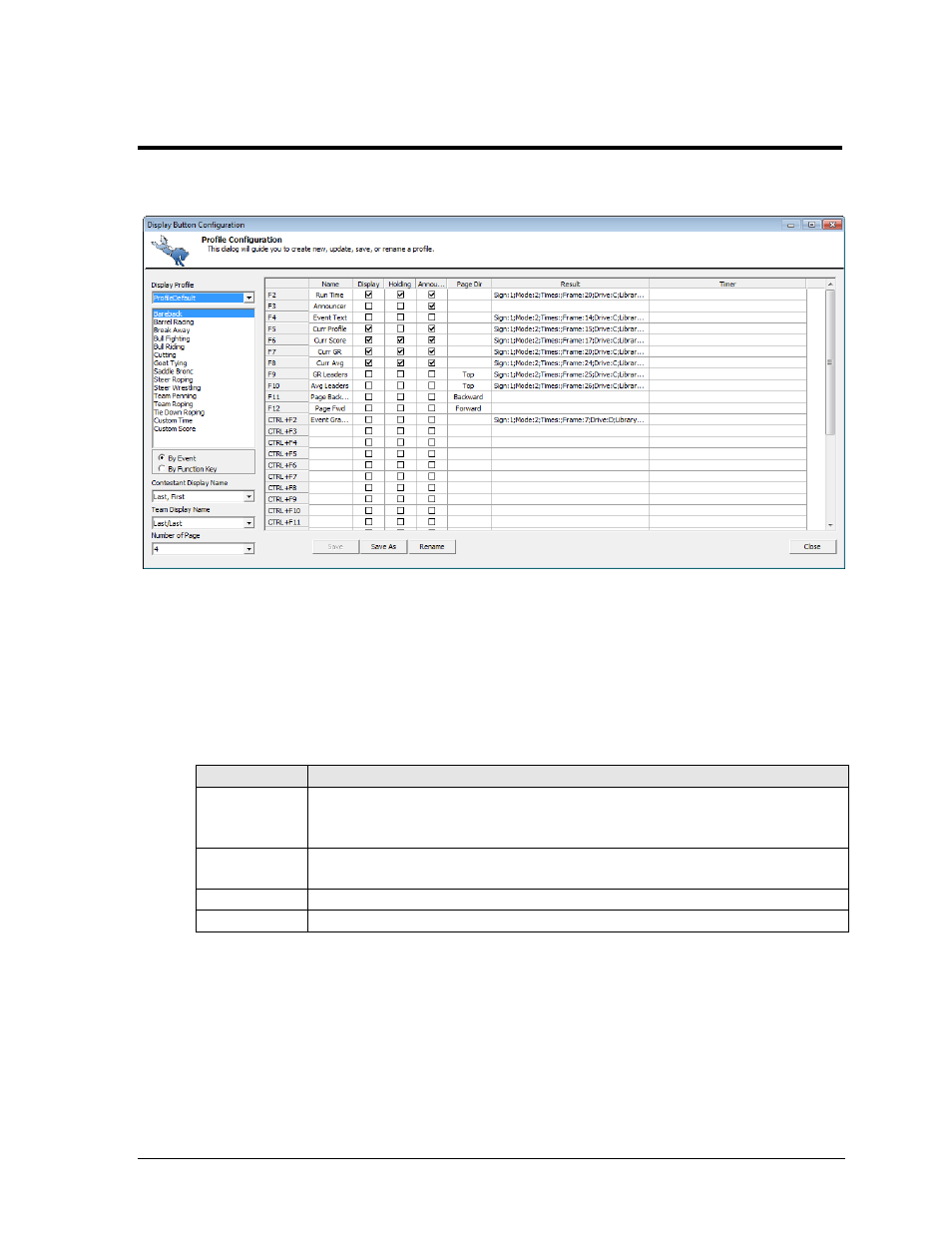Section 4: display profile configuration, 1 display buttons, 2 default profiles – Daktronics DakStats 3000 Rodeo User Manual
Page 25: Section 4, Display profile configuration, Display buttons, Default profiles

Display Profile Configuration
21
Section 4:
Display Profile Configuration
Go to Configure > Display Buttons to open the Display Button Configuration window (Figure 28).
4.1 Display Buttons
Display buttons use the [F2] through [F12] keys for displaying information during a rodeo.
There are 33 editable buttons using the F keys together with [Ctrl] and [Shift]. The following
chart explains the actions of each of the buttons across the bottom of the Display Button
Configuration window:
Button
Action
Save
Saves the profile information
Note: If the selection is changed without saving the information, the user
will be prompted to save any changes before closing the window.
Save As
Allows a user to save a current profile under a new name so that new (or
default) profiles only needing minor changes can be created more easily
Rename
Used to rename an existing profile
Close
Exits the configuration window.
4.2 Default Profiles
DakStats Rodeo comes programmed with two default display profiles. Select one based on
the Daktronics display controller in use:
“ProfileDefault” – use this profile for DMP-7000 (Venus 7000) controllers.
“ProfilePlaySequenceDefault” – use this profile for DMP-8000 (V-Net) controllers.
Note that these controllers DO NOT support Selected Frame commands.
Daktronics Galaxy displays may use either profile, but “ProfileDefault”
(Selected Frame) is preferred.
Figure 28: Display Button Configuration
